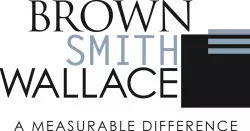Employers that sponsor a group health plan might have recently received a letter from the Centers for Medicare and Medicaid Services (CMS) requesting submission of their group health plan report for the IRS/SSA/CMS Data Match Project. Employers that receive this letter need to accurately complete the report within 30 days. Otherwise, CMS may take the following actions:
- Assess a civil monetary penalty of $1,000 for each person named in the inquiry for whom the employer has either not responded or provided incomplete information;
- Subpoena business records and members of the organization to enforce compliance with the law; and
- Investigate the employer's group health plan (GHP) or large group health plan for a determination of nonconformance. If such a determination is made, CMS can make a referral to the IRS for imposition of an excise tax on the employer.
Background on the Data Match Project
Section 6202 of the Omnibus Budget Reconciliation Act (OBRA) of 1989 was enacted many years before Health Care Reform legislation to provide government agencies better information about Medicare beneficiaries' GHP coverage. The IRS, the Social Security Administration (SSA) and the Centers for Medicare and Medicaid Services (CMS) are required by regulation to share information each agency has about Medicare beneficiaries and/or their spouses' employment. The process for sharing this information is called the IRS/SSA/CMS Data Match.
The Data Match aims to help determine situations where other health insurance becomes primary to Medicare. The Data Match identifies employers of beneficiaries or spouses of beneficiaries for whom employer coverage, if available, is likely to be primary to Medicare. The Medicare Trust Funds have saved more than $3.5 billion by adjusting when and if Medicare should pay claims.
Extensions and Benefits
Extensions for an additional 30 days to complete the requirement are available by request. However, requests for extensions more than 60 days (the original 30 days and one 30-day extension) usually are not granted to any employer reporting on fewer than 150 workers. Should an employer have more than 150 workers, extensions will be reviewed on a case-by-case basis.
While the Data Match Project will prove onerous to some employers, CMS believes the money saved and recovered through this project far outweighs the burden as follows:
- Employers profit because medical claims involving Medicare beneficiaries covered by group health plans are received and processed more quickly, which reduces administrative expenses and provides better services to covered individuals.
- Covered Medicare beneficiaries benefit because their claims are processed correctly in the first place. In almost all cases where Medicare is a secondary payer to a group health plan, the beneficiaries' out-of-pocket expenses are lower.
- The Medicare program benefits because Medicare makes fewer mistaken primary payments, which reduces trust fund expenses and the administrative cost of attempting to collect inappropriate payments.
- Providers, physicians and other suppliers benefit because the total payments they receive for services provided to Medicare beneficiaries are greater when Medicare is a secondary payer to a group health plan than when Medicare is the primary payer.
However, if you are an employer that sponsors a GHP, this doesn't reduce your impact if you receive the CMS letter.
Visit bswllc.com if you have any questions or need further clarification on how to complete the CMS questionnaire. Or contact Ron Present, Partner and Health Care Industry Group Leader at Brown Smith Wallace, at 314.983.1358 or rpresent@bswllc.com.
The content of this article is intended to provide a general guide to the subject matter. Specialist advice should be sought about your specific circumstances.

